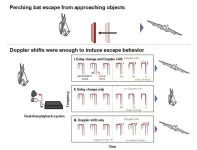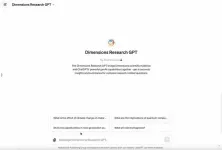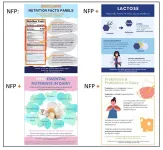(Press-News.org) People who have had a kidney transplant are at high risk for developing skin cancers. New research directed by investigators from the Johns Hopkins Kimmel Cancer Center is exploring the best combination of treatments to target skin cancers while preserving the transplanted organs.
Now, they report results from a clinical trial testing a novel drug combination designed to stimulate the immune system to fight advanced, potentially lethal skin cancers while not permanently damaging patients’ transplanted kidneys. The treatment included two immune-suppressing drugs to protect the transplanted kidney and either one or two cancer-fighting therapies known as checkpoint inhibitors, which activate the immune system to destroy cancer cells.
In a multicenter phase I/II study of eight patients, every patient experienced disease progression while taking both immune-suppressing drugs and one checkpoint inhibitor. However, after adding a second checkpoint inhibitor to the regimen, two of six patients experienced a complete response, meaning their tumors fully regressed. These results, published Jan. 22 in the Journal of Clinical Oncology, have led to the initiation of a follow-up study to test a different combination of immune-based therapies in this patient population.
“To our knowledge, this study is the first to prospectively test whether low-dose tacrolimus (a drug used to prevent organ rejection) and prednisone can preserve a patient’s transplanted kidney while also allowing immune checkpoint inhibitor-mediated tumor regression in kidney transplant recipients with advanced skin cancers,” says senior author and principal investigator Evan Lipson, M.D., an associate professor of oncology at the Johns Hopkins University School of Medicine and Kimmel Cancer Center. “These results provide important insights into the effects of this combination of therapies on the immune system, and help us better understand how to monitor the health of the transplanted organ as patients receive these medicines.”
Organ transplant recipients develop skin cancers at an exponentially higher rate compared with the general population because they receive long-term immunosuppressive drugs to prevent rejection of the transplanted organ. This can “lull” the immune system into not recognizing and attacking cancers as they form, says Lipson.
“This is a huge unmet medical need because these skin cancers are painful, disfiguring, aggressive and frequently lethal, especially in this patient population,” he says. “Ideally, we want to help a patient’s immune system wake up enough to attack those cancers but not be so activated that it begins rejecting the transplanted organ.”
The Experimental Therapeutics Clinical Trials Network (ETCTN) trial included eight patients with advanced melanoma, cutaneous squamous cell carcinoma or Merkel cell carcinoma who had previously received standard, nonimmune-based therapies or were ineligible for them. All participants had previously received a kidney transplant and had adequate kidney function when they enrolled in the study. The average time from kidney transplantation to trial initiation was 13 years. All patients agreed to undergo dialysis in the event of kidney failure caused by the treatment regimen. The ETCTN is a National Cancer Institute-funded network created to evaluate innovative cancer therapies through national, cooperative early-phase clinical trials.
Participants received a standard immunosuppressive regimen of low-dose tacrolimus and prednisone. After investigators confirmed that kidney function was stable on the regimen, they added the immune checkpoint inhibitor nivolumab, which inhibits the PD-1 protein and is FDA-approved for treating patients with melanoma and other types of cancer. All eight patients experienced progressive disease. Investigators then added a second checkpoint inhibitor, the CTLA-4 inhibitor ipilimumab, to the existing three-drug regimen in six patients.
Investigators performed tumor biopsies to assess immune response before and after receiving nivolumab. All but one initial tumor biopsy showed a near-complete absence of infiltrating immune cells, indicating that patients’ immune systems were essentially inactive against the cancer. Of five biopsies taken while patients were receiving nivolumab, two showed moderate immune infiltrates, indicating that the immune system had begun to attack the skin cancer. Both of these patients later had a complete response when investigators added ipilimumab to the nivolumab.
The researchers also measured donor-derived cell-free DNA levels every two weeks to study feasibility as a potential predictor of graft rejection. Donor-derived cell-free DNA is a quantitative, blood-based marker of graft rejection used to monitor graft health in the non-oncology post-transplant setting, but its utility in the oncology setting with kidney transplant recipients is largely unknown.
The study did not meet its primary composite endpoint of partial or complete tumor response or stable disease without graft loss after 16 weeks. Three patients experienced treatment-related graft loss at different points during the trial.
Nonetheless, Lipson considers the trial an important step forward. “The immune suppression we chose prevented nivolumab (anti-PD-1) from working at full effectiveness but didn’t fully protect the kidney either,” he said. “We also learned that the immune system really started attacking cancer only when we added the second checkpoint inhibitor.”
Another important finding, in two of the three patients whose transplanted kidneys were damaged because of the trial medications, was that donor-derived cell-free DNA levels increased 10 and 15 days before increases in serum creatinine, a measure of kidney health. “Going forward, this knowledge may help us intervene earlier and better preserve the transplanted organ, a precious resource,” Lipson said.
The study team has already begun work on a follow-up trial that will pair prednisone with the immunosuppressive drug sirolimus in addition to the two immune checkpoint inhibitors, nivolumab and ipilimumab, given concurrently. “The completed study introduced two checkpoint inhibitors sequentially because we didn’t want to risk overstimulating the patient’s immune system and harm the transplanted organ,” Lipson said. “But some cutaneous tumors grow so quickly we can’t wait to give a second immunotherapy drug months after starting a first.”
This study grew out of Lipson’s pioneering work a decade ago, in which he was the first author on a pair of case reports, also published in the Journal of Clinical Oncology, of organ transplant recipients being treated with immune checkpoint inhibitors for metastatic melanoma.
Additional study co-authors were Kara M. Schenk, Julie Stein, Megan D. Schollenberger, William H. Sharfman, Kristin P. Bibee, Jeffrey F. Scott, Manisha J. Loss, Hao Wang, Janis M. Taube, Suzanne L. Topalian, Serena M. Bagnasco and Daniel C. Brennan of Johns Hopkins. Other researchers contributing to the work were from Bozeman Health Deaconess Cancer Center in Bozeman, Montana; Robert H. Lurie Comprehensive Cancer Center of Northwestern University in Chicago; UPMC (University of Pittsburgh) Hillman Cancer Center; Moffitt Cancer Center and Research Institute, Tampa, Florida; Dana-Farber Cancer Institute, Brigham and Women’s Hospital; Northwestern University Feinberg School of Medicine, Chicago; Clinical Skin Center of Northern Virginia, Fairfax, Virginia; and the National Cancer Institute, Investigational Drug Branch, Cancer Therapy Evaluation Program.
The work was supported in part by the National Cancer Institute (grant UM1 CA186691), the Bloomberg~Kimmel Institute for Cancer Immunotherapy, the Marilyn and Michael Glosserman Fund for Basal Cell Carcinoma and Melanoma Research, the Mary Jo & Brian C. Rogers Fund, Moving for Melanoma of Delaware, the Barney Family Foundation, the Laverna Hahn Charitable Trust, Bristol-Myers Squibb, and the Raymond and Melody Ranelli Fund.
END
Immunotherapy combination may benefit patients with transplanted kidneys and advanced skin cancers
2024-02-28
ELSE PRESS RELEASES FROM THIS DATE:
Nature’s sonar: Scientists reveal how Japanese horseshoe bats perceive moving objects
2024-02-28
Unlike most animals that rely on visual senses, bats navigate and locate prey or obstacles through echolocation. By emitting sounds and comparing them to the reflected echoes, bats can “visualize” movement in the environment. When sound waves encounter a moving object, they can undergo changes such as a Doppler shift in frequency or experience a delay, which the bat can sense. However, it is unclear which acoustic characteristics bats rely on to detect moving objects.
Japanese horseshoe bats (Rhinolophus ferrumequinum nippon) emit ultrasound pulses that are characterized ...
Dimensions Research GPT – evidence-based research insights for ChatGPT platform users
2024-02-28
Digital Science is pleased to announce the launch of two new products – Dimensions Research GPT and Dimensions Research GPT Enterprise – bringing the unmatched, trusted research coverage of Dimensions to the ChatGPT platform.
Users can get AI-generated answers to research-related questions on the GPT platform informed by Dimensions’ huge database, making ChatGPT more research-specific for topic exploration.
Available to users of both the free and paid Dimensions Analytics web application, Dimensions Research GPT and Dimensions Research GPT Enterprise help overcome ...
Calcium crystal deposits in the knee contribute to joint damage
2024-02-28
(Boston)— Knee osteoarthritis (OA) is the most common form of arthritis, affecting approximately 600 million people worldwide and 34 million people in the U.S. There are no treatments available that prevent its progression to date. Recommended pharmacological treatments for symptoms have either small-to moderate effects or short-term effects, often with side effects, and lifestyle behaviors such as exercise and weight loss are under-utilized.
Historically, intra-articular mineralization (IAM) or calcium crystal deposits in the joint, were thought to be of no clinical consequence, and perhaps just something that happens with older ...
International team led by BSC develops artificial intelligence technology to improve treatment of rare diseases
2024-02-28
An international team of scientists led by ICREA researcher and Director of the Life Sciences Department at the Barcelona Supercomputing Centre - Centro Nacional de Supercomputación (BSC-CNS), Alfonso Valencia, has developed a technology based on artificial intelligence (AI) for the study of minority diseases and has successfully applied it to identify the possible causes of the appearance of what are known as myasthenic-congenital syndromes, a group of rare inherited disorders that limit the ability to move and cause varying degrees of muscle weakness in patients.
The lack of available data on minority, also known as rare, diseases makes research in this area extremely ...
Anti-cancer drug could improve symptoms after stroke
2024-02-28
A study by the Institut de Neurociències of the UAB (INc-UAB) demonstrates in animal models the benefits of vorinostat after having suffered a stroke. The drug, used in humans to treat cutaneous T-cell lymphoma, has been proved to mitigate brain injuries and help in restoring brain tissue.
Ischemic stroke is the second leading cause of death worldwide and occurs when blood flow cannot reach the brain due to an obstruction. For a more or less long period of time, the brain does not receive oxygen and this causes damage and functional impairment. Hypertension is the most frequent modifiable risk factor for stroke and is associated with worse recoveries.
Currently, ...
Consumers empowered with the facts on dairy’s nutritional benefits buy and consume more dairy foods
2024-02-28
Philadelphia, February 28, 2024 – Although most Americans consume dairy and many dairy foods are rising in popularity, fluid milk consumption has seen a significant decline among US consumers since the 1960s. To reverse this trend—and ensure consumers are getting adequate amounts of dairy in their diets—the dairy sector has developed educational materials to reach consumers through informational infographics and TV and print ads, and on social media. But do these kinds of educational ...
How air pollution can harm team performance
2024-02-28
High levels of air pollution can harm performance of teams, which are vital for solving complex problems such as developing clean energy technologies and vaccines, and this could harm economic development in highly polluted emerging economies, says a new study co-authored at Cambridge Judge Business School.
The study used data from 15,000 live escape-room games in London. It estimated based on the data and the study’s equations that for about 3,500 teams that participated for team-building exercises (usually from a corporate ...
Online toxicity can only be countered by humans and machines working together, according to Concordia researchers
2024-02-28
Wading through the staggering amount of social media content being produced every second to find the nastiest bits is no task for humans alone.
Even with the newest deep-learning tools at their disposal, the employees who identify and review problematic posts can be overwhelmed and often traumatized by what they encounter every day. Gig-working annotators, who analyze and label data to help improve machine learning, can be paid pennies per unit worked.
In a new Concordia-led paper published in IEEE Technology and Society Magazine, researchers argue that supporting ...
SwRI sponsors Future Leaders Program at 2024 ITS America Conference & Expo
2024-02-28
SAN ANTONIO– February 28, 2024 – Southwest Research Institute (SwRI) and ITS Arizona are inviting college students to participate in the Future Leaders Program at this year’s ITS America Conference & Expo, April 22-25, at the Phoenix Convention Center.
The Future Leaders Program allows the next generation of intelligent transportation systems (ITS) leaders to attend education sessions and meet with exhibitors, sponsors and technology providers, all while networking with ITS professionals who can offer career advice and mentorship.
“The ITS industry is continuously looking for smart and creative people to ...
New LOINC® semiannual release highlights health equity work with national and international partners
2024-02-28
LOINC® from Regenstrief Institute’s semiannual content update highlights the comprehensive nature of its work with international partners, including supporting interoperability for prescription drug records, reporting notifiable conditions and standardizing social risk screening tools to represent social determinants of health (SDOH) information in electronic health records (EHRs).
LOINC release 2.77 includes more than 800 new concepts and edits to more than 1,500 concepts. Work captured in the new release includes support for molecular genetic drug and toxicology ...





